Urban. Indigenous. Proud
Kristi Lane Sinclair, Clayton Windatt, Jamie Whitecrow, Tracie Louttit, Darlene Naponse
2018
| 5 x 8 min
A film project partnership between the ONTARIO FEDERATION OF INDIGENOUS FRIENDSHIP CENTRES and THE NATIONAL FILM BOARD OF CANADA.
5 Shorts Synopsis
Full Circle
Toronto Council Fire Native Cultural Centre (TORONTO)
Directed by Kristi Lane Sinclair
Produced by Kristi Lane Sinclair
Since its inception in 1976, Toronto Council Fire Native Cultural Centre has been a place in which the urban Indigenous community could feel safe, learn and grow. Council Fire uses cultural teachings and creates space to restore Indigenous identity, especially for its youth. At the core of Council Fire’s history and teachings is the drum, which they refer to as “our mother.”
In Full Circle, we get to know the members of the Toronto Council Fire Youth Program as they embark on new journeys. We meet a drum group that lays down tracks at a professional recording studio and a group of young dancers who showcase their moves at a dance studio.
Some Stories…
North Bay Indigenous Friendship Centre (NORTH BAY)
Directed by Clayton Windatt
Produced by Sarah Charles-DeCarlo
Short Synopsis
Some Stories follows a group of Indigenous youth from the Nipissing (Nbisiing) region who come together through the North Bay Indigenous Friendship Centre and explore the importance and impact of stories in their lives.
Long Synopsis
Some Stories follows a group of young Indigenous artists in Nipissing (Nbisiing) First Nation territory, North Bay, Ontario, as they share their stories about family, community, place, and all things related to life. Through Serena, a staff member at the North Bay Indigenous Friendship Centre, we meet various young artists, including Justice, Agnes, Keenan and Victoria, and explore the challenges and celebrations of rural and urban Indigenous life.
The film looks at issues of self and community at arts activations within and around North Bay, its camera shifting perspectives and capturing an array of sights and sounds. Here, connections are made between family, culture and community by gathering and sharing on the land, both within the city and in the bush. We see participants preparing for ceremonies, celebrations and hunting, and youth engaging in cultural practices and expressing themselves through art, food, drumming and cultural teachings. They share stories that have the ability to change people’s perspectives on the world—stories about rapping, drumming, learning, teaching and having fun.
Everyone here comes from different places and backgrounds, but through their stories and their friendships they’ve built a strong sense of community at the North Bay Indigenous Friendship Centre.
That Old Game Lacrosse
Fort Erie Native Friendship Centre (FORT ERIE)
Directed by Jamie Whitecrow
Produced by Kristi Lane Sinclair
Long before Canada became a country, every nation on Turtle Island had its own unique version of a stick-ball game. The most popular one on this continent has always been lacrosse, a game that was gifted to the First Nations by the birds and four-legged animals, and played for centuries as a medicine game. This short film explores how the medicine game that has been passed down from generation to generation by the Haudenasaunee at the Fort Erie Native Friendship Centre is helping to revive their cultures and restore their communities. Young people have always been at the centre of community for many First Nations societies, and this documentary shares the wisdom of cultivating the spirit of belonging in youth, revealing how this is helping to shape a new future.
Zaagi’idiwin
United Native Friendship Centre (FORT FRANCES)
Directed by Tracie Louttit
Produced by Michelle Desrosier
This short film offers a snap-shot of life in Fort Frances, Ontario, as some of its community members prepare to gather in a special place that will bond their hearts and minds. By engaging in ceremony and celebrating their language, culture and land, the people are creating “Zaagi’idiwin”—a symbol of their truth, their story and their own reconciliation, which is community-defined, beautiful and inspiring.
Places to Gather and Learn
N’Swakamok Native Friendship Centre (SUDBURY)
Languages Spoken in Film: English and Ojibwe
Directed by Darlene Naponse
Produced by Sarah Decarlo
Short Synopsis
A day in the lives of Indigenous students at N’Swakamok Alternative School, Places to Gather and Learn emphasizes the value and necessity of Indigenous alternative and community spaces. This short follows students as they learn and share their stories, aspirations, obstacles and accomplishments.
Run in partnership with the N’Swakamok Indigenous Friendship Centre, and as a satellite of Sudbury Secondary School, N’Swakamok Alternative School offers students a supportive and culturally activated space to gain life skills as they pursue their academic and personal goals.
Long Synopsis
A day in the lives of Indigenous students at N’Swakamok Alternative School, Places to Gather and Learn emphasizes the value and necessity of Indigenous alternative and community spaces. This short follows students as they learn and share their stories, aspirations, obstacles and accomplishments.
Run in partnership with the N’Swakamok Indigenous Friendship Centre, and as a satellite of Sudbury Secondary School, N’Swakamok Alternative School offers students a supportive space to gain life skills as they pursue their academic and personal goals.
This unique school focuses on the needs of students, some of whom are also parents, and creates an accessible learning environment that welcomes their children. Students are also encouraged to take part in the Friendship Centre Programs, through which Indigenous culture and values are put into practice and nourished, ensuring the students’ and the school’s continued success.
Together, they cook for and serve Elders, engage with their community, and help one another along the way.
Poster
Quote from Claude Joli-Coeur
“Our partnership with the Ontario Federation of Indigenous Friendship Centres has opened the door to a new way of exploring urban Indigenous culture and lived experiences, working with voices from these communities to tell their own stories. At the NFB, we have a long tradition of Indigenous creation and community-based filmmaking. With Urban.Indigenous.Proud, the OFIFC has helped us to take this commitment to a new level and, I hope, have a positive and lasting impact with urban Indigenous communities everywhere.”
- Claude Joli-Coeur, Government Film Commissioner and Chairperson of the NFB
Quote from Sylvia Maracle
“Friendship Centres show that we are still here! They are places where we can be Indigenous, can be urban, and that is what the films show. The stories shared in these films are about the re-emergence of culture as urban development occurred and demonstrate how Friendship Centres contribute to a positive vision of Indigenous people.”
- Sylvia Maracle, Executive Director of the Ontario Federation of Indigenous Friendship Centres (OFIFC)
Directors
Kristi Lane Sinclair
Director / Producer
Photo
Photo : Justin Cathcart
Clayton Windatt
Director
Photo
Photo : Lindsay Sarazin
Jamie Whitecrow
Director
Photo
Photo : Natasha Naveau
Tracie Louttit
Director
Photo
Photo : Tracie Louttit
Darlene Naponse
Director
Photo
Photo : Darlene Naponse
Images - Full Circle
Loading...
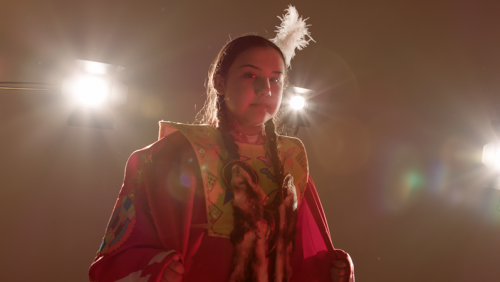
Download
Loading...
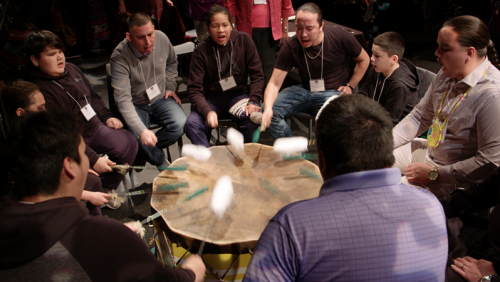
Download
Loading...
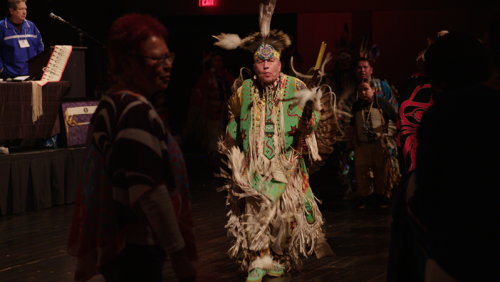
Download
Loading...
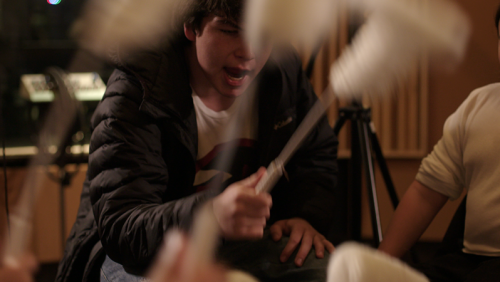
Download
Credits - Full Circle
Written and Directed by
Kristi Lane Sinclair
Produced by
Kristi Lane Sinclair
Executive Producer
André Picard
Associate Producer
Kate Vollum
Director of Photography
Shane Powless
Sound Recordist
Mike Filippov
Editor
Jordan O’Connor
Sound Edit
Anthony Wallace
Additional Cinematography
Nicholas Bradford-Ewart
Institutional Studio
Administrator
Isabelle Limoges
Production Coordinator
Gabrielle Dupont
Technical Coordinator
Daniel Lord
Director Business Development, Institutional Program
Julie Huguet
Coordinator, Institutional Program
Marcia Seebaran
Ontario Studio
Executive Producer
Anita Lee
Producer
Lea Marin
Manager, Studio Operations
Mark Wilson
Production Supervisor
Marcus Matyas
Technical Coordinator
Kevin Riley
Technical Coordinator
Max Wolfond
Assistant Editor
William Mitchell
Online Editor
Denis Pilon
Sound Mixer
Luc Leger
Infographist
Melanie Bouchard
Cynthia Ouellet
Jacques-Bertrand Simard
Technicians
Isabelle Painchaud
Patrick Trahan
Pierre Dupont
Marketing Manager
Charles Pease
Kelly Fox
Publicist
Jennifer Mair
Networking Agent
Donna Cowan
Marketing Manager, Community Projects
Jane Gutteridge
Legal Services
Christian Pitchen
Title Design
Aimée Rochard
Featuring
Andrea Chrisjohn
David (DJ) Pangowish
Denise Toulouse
Kalen Pelletier
Kevin Myran
Nayen Pitawanakunat
Dana Kahn
Khadijah Roy
Jaylyn Bardy
Albert Therrien
Malakai Daybutch
Emma Cree Therrien
Kiyana Johnston
Jonathon Therrien
Dakota Myran
Athena Tomes
Joey Myran
Tiffani Vart
Sage Myran
Jayden Wemigwans
Special Thank You to
Toronto Council Fire Native Cultural Centre
Mia Desroches
Jukasa Media Group
Manitobah Mukluks
Presented by the Ontario Federation of Indigenous Friendship Centres
Produced by the National Film Board of Canada
in collaboration with
the Ontario Federation of Friendship Centres
and
Toronto Council Fire Native Cultural Centre
Images - Some Stories...
Loading...
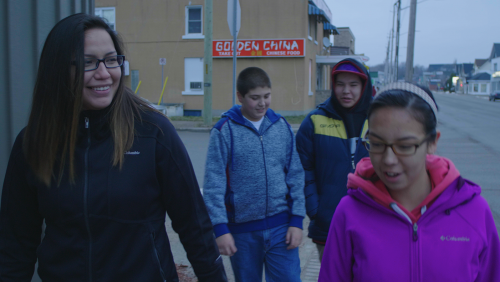
Download
Loading...
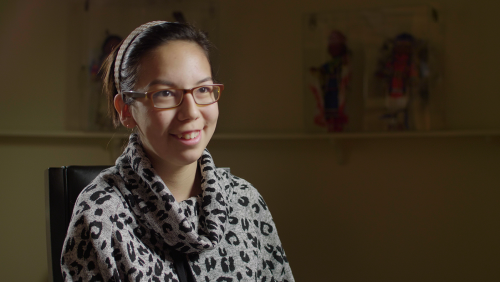
Download
Loading...
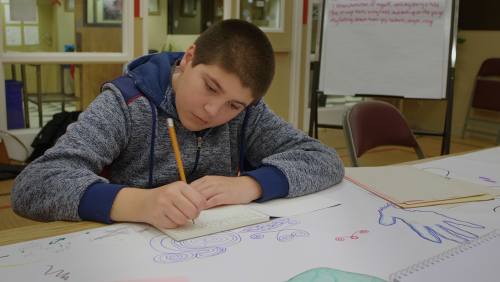
Download
Loading...
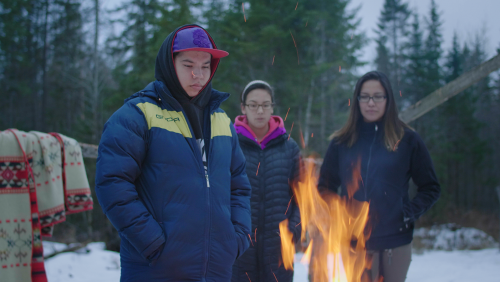
Download
Loading...
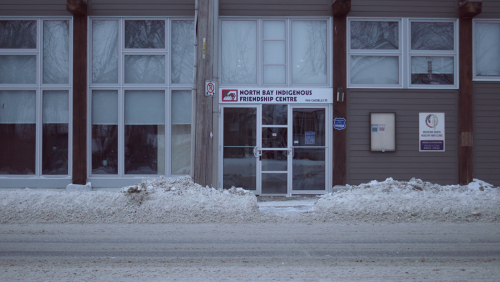
Download
Credits - Some Stories...
Written and Directed by
Clayton Windatt
Produced by
Sarah Charles-DeCarlo
Executive Producer
André Picard
Associate Producer
Kate Vollum
Director of Photography
Lindsay Sarazin
Sound Recordist
Jacob Dayfox
Editor
Sarah Charles-DeCarlo
Sound Edit
Anthony Wallace
Sound Design
Sarah Charles-DeCarlo
Additional Cinematography
Bradley Trudeau
Sarah Charles-DeCarlo
Additional Sound Recording
Sarah Charles-DeCarlo
Tammy Lin Foreman
Camera Assist
Jacob White
Institutional Studio
Administrator
Isabelle Limoges
Production Coordinator
Gabrielle Dupont
Technical Coordinator
Daniel Lord
Director Business Development, Institutional Program
Julie Huguet
Coordinator, Institutional Program
Marcia Seebaran
Ontario Studio
Executive Producer
Anita Lee
Producer
Lea Marin
Manager, Studio Operations
Mark Wilson
Production Supervisor
Marcus Matyas
Technical Coordinator
Kevin Riley
Production Coordinator
Max Wolfond
Assistant Editor
William Mitchell
Online Editor
Serge Verreault
Sound Mixer
Serge Boivin
Infographists
Melanie Bouchard
Cynthia Ouellet
Jacques-Bertrand Simard
Technicians
Isabelle Painchaud
Patrick Trahan
Pierre Dupont
Marketing Manager
Charles Pease
Kelly Fox
Publicist
Jennifer Mair
Networking Agent
Donna Cowan
Marketing Manager, Community Projects
Jane Gutteridge
Legal Services
Christian Pitchen
Title Design
Aimée Rochard
North Bay Indigenous Friendship Centre
Founding Members
Ruth Couchie
Jack Couchie
Doris Laronde
Kathleen Saville
Jackie Favreau Charlie White
Lillian Hare
Muriel Sawyer
Bailey Powel
Gloria Mandami
Ontario Federation of Indigenous Friendship Centres
Featuring
Serena Koostachin
Simon Mathias
Roger Assiniwe
Agnes Iahtail Justice Martin
Keenan Mitchell
Victoria Sam
Kaneisha Echum
Special Thank You to
North Bay Indigenous Friendship Centre
Nipissing First Nation
Nbisiing Secondary School
Mia Desroches
The North Bay Indigenous Friendship Centre is located on
Nipissing First Nation Territory
Presented by the Ontario Federation of Indigenous Friendship Centres
Produced by the National Film Board of Canada
in collaboration with
the Ontario Federation of Friendship Centres
and
North Bay Indigenous Friendship Centre
Images - That Old Game Lacrosse
Loading...
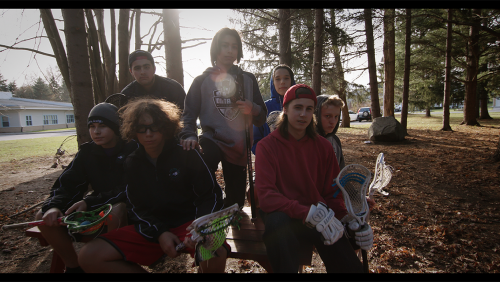
Download
Loading...
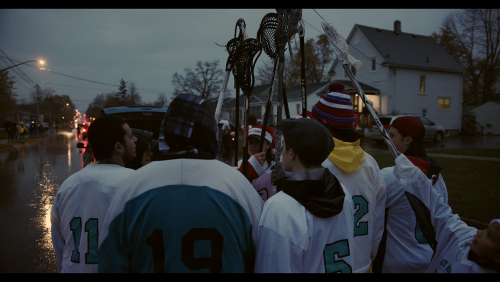
Download
Loading...
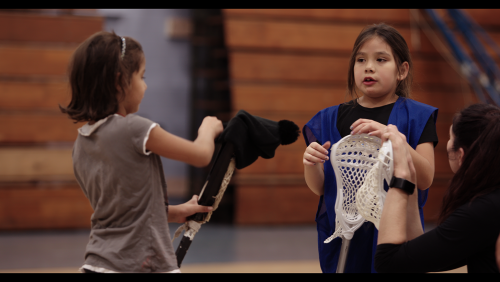
Download
Loading...
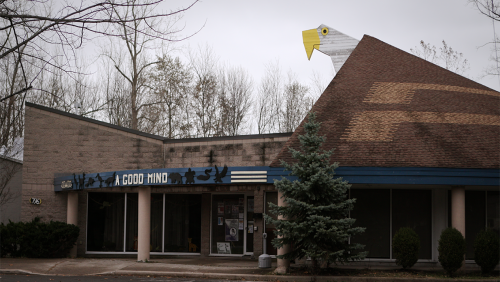
Download
Credits - That Old Game Lacrosse
Written and Directed by
JL Whitecrow
Produced by
Kristi Lane Sinclair
Executive Producer
André Picard
Associate Producer
Kate Vollum
Director of Photography
Nicholas Bradford-Ewart
Sound Recordist
Beni Harper
Editor
Jordan O’Connor
Sound Edit & Narration Record
Anthony Wallace
Narration
Gary Parker
Animation
JL Whitecrow
Institutional Studio
Administrator
Isabelle Limoges
Production Coordinator
Gabrielle Dupont
Technical Coordinator
Daniel Lord
Director Business Development, Institutional Program
Julie Huguet
Coordinator, Institutional Program
Marcia Seebaran
Ontario Studio
Executive Producer
Anita Lee
Producer
Lea Marin
Manager, Studio Operations
Mark Wilson
Production Supervisor
Marcus Matyas
Technical Coordinator
Kevin Riley
Max Wolfond
Assistant Editor
William Mitchell
Online Editor
Denis Pilon
Sound Mixer
Luc Leger
Infographist
Melanie Bouchard
Cynthia Ouellet
Jacques-Bertrand Simard
Technicians
Isabelle Painchaud
Patrick Trahan
Pierre Dupont
Marketing Manager
Charles Pease
Kelly Fox
Publicist
Jennifer Mair
Networking Agent
Donna Cowan
Marketing Manager, Community Projects
Jane Gutteridge
Legal Services
Christian Pitchen
“Shadows Atmosphere” “N’Swakamok”
Performed, written and published
Anthony Wallace
Julian Cote
Title Design
Aimée Rochard
Fort Erie Native Friendship Centre team
Executive Director
Jennifer Dockstader
Cultural Resource Coordinator
Gary Parker
Youth Navigator
Emily Schutt
Wasa-Nabin
Shannon Cotter
Urban Aboriginal Healthy Living
Riley Zimak
Ontario Federation of Indigenous Friendship Centres
Featuring
Kevin Sandy
Dylan Brant
Roman Hill
Joejoe Brant
Lucas Sawana
Krystal Brant
Avery Steinbach-Parker
Gary Parker
Jennifer Dockstader
Special Thank You to
Fort Erie Native Friendship Centre
Fort Erie Native Friendship Centre Staff and Community
Mia Desroches
We are The Dish With One Spoon shared territory of the Haudenosaunee and Anishinaabe, and historically the gathering space of many Indigenous Nations
Thank You
Shannon Cotler
Emily Schutt
Riley Zimak
Bert Pringle
John Liberty Bell
Emilie Beauchamp
Jermone Paul
Presented by the Ontario Federation of Indigenous Friendship Centres
Produced by the National Film Board of Canada
in collaboration with
the Ontario Federation of Friendship Centres
and
Fort Erie Native Friendship Centre
Images - Zaagi’idiwin
Loading...
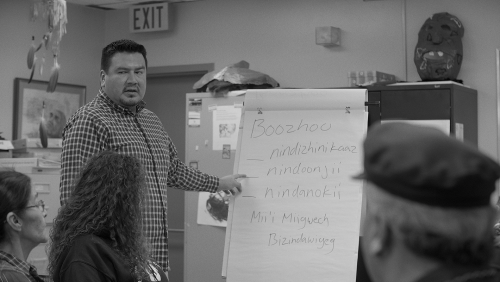
Download
Loading...
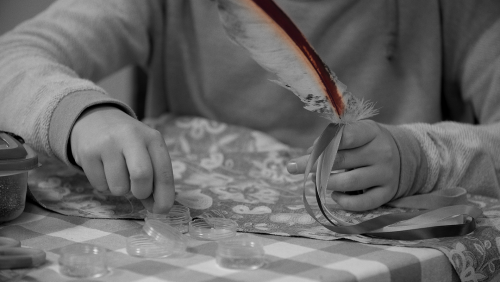
Download
Loading...
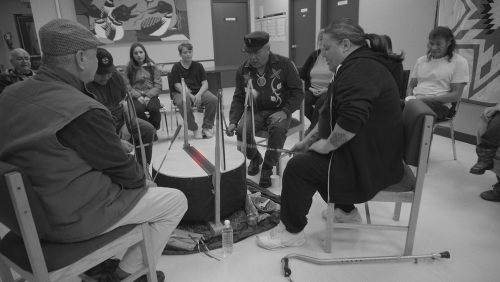
Download
Loading...
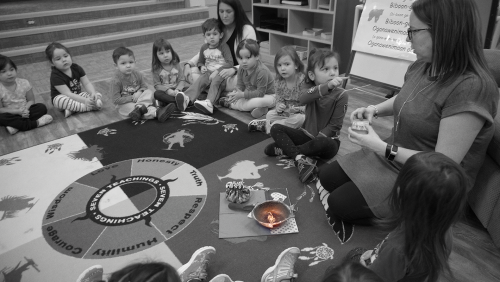
Download
Credits - Zaagi’idiwin
Written and Directed by
Tracie Louttit
Produced by
Michelle Derosier
Executive Producer
André Picard
Associate Producer
Kate Vollum
Director of Photography
Damien Gilbert
Sound Recordist
Zoe Gordon
Editor
Jordan O’Connor
Sound Edit
Grant Edmonds
Institutional Studio
Administrator
Isabelle Limoges
Production Coordinator
Gabrielle Dupont
Technical Coordinator
Daniel Lord
Director Business Development, Institutional Program
Julie Huguet
Coordinator, Institutional Program
Marcia Seebaran
Ontario Studio
Executive Producer
Anita Lee
Producer
Lea Marin
Manager, Studio Operations
Mark Wilson
Production Supervisor
Marcus Matyas
Technical Coordinator
Kevin Riley
Production Coordinator
Max Wolfond
Assistant Editor
William Mitchell
Online Editor
Yannick Carrier
Sound Mixer
Geoffrey Mitchell
Infographists
Melanie Bouchard
Cynthia Ouellet
Jacques-Bertrand Simard
Technicians
Isabelle Paincahud
Patrick Trahan
Pierre Dupont
Marketing Manager
Charles Pease
Kelly Fox
Publicist
Jennifer Mair
Networking Agent
Donna Cowan
Marketing Manager, Communicty Projects
Jane Gutteridge
Legal Services
Christian Pitchen
Title Design
Aimée Rochard
United Native Friendship Centre
Elders
Gilbert Smith
Nancy Jones
Ojibwe Language Teacher
Mike Jones
Zaagi-idiwin Aboriginal Head Start Program
Urban Aboriginal Healthy Kids
Akwego
Wasa Nabin
Aboriginal Family Support
Ontario Federation of Indigenous Friendship Centres
Featuring
Charity McMahon
Amelia Kelly
Thomas Cunningham
Arya Armstrong
Lincoln Thompson-Field
Rae Spoon
Raina Grover
Brenda W. Bedard
Kiannah Payash
Terry McMahon
Tristin Yerxa
Nancy Lucy Jones
Michael David Jones
Katie Lynn Joan Eide
Cadence Smith-Anderson
Airrol Jack
Rochelle Bird
Albert Cochrane
BuddyLoyie
Trevor Cory Bruyere
Dawn Jourdain
Madison Odahl
Annie Hawk
Sawyer Mainville
Claudia Chiefson
Annabelle Gosselin
Jaxon McMillen
Martin Calder
Darcy Rae Jones
Harmony Payash
Kaleb Firth
Andros Bruyere
Rose Marie Tuesday
Melanie McPherson
Jeremy Andy
Natasha Jack
Sheila McMahon
Hayden Allam
Deborah Emes
Sandy Bruyere
Trevor Bruyere
Curtis Thane Mainville
Nevaya Kingbird
Travis Tom Jr.
Rikki Smith
London Morriseau
Dayka Whitefish
Nina Smith
Courtney E. C. Plourde
Dana Ward
Liam McEvoy
Kael Bradley Archie
Tara Henttonen
Gilbert Smith
Kristen Kelly
Jody Smith
Damon Malik
William Jack
Richard Bird Sr.
Rosie Bird
David Morrison
Satiannah Andy
Keshaun Bruyere
Isabel Smith
Special Thank You to
United Native Friendship Centre
Friendship Centre Community
Mia Desroches
Presented by the Ontario Federation of Indigenous Friendship Centres
Produced by the National Film Board of Canada
in collaboration with
the Ontario Federation of Friendship Centres
and
United Native Friendship Centre
Images - Places to Gather and Learn
Loading...
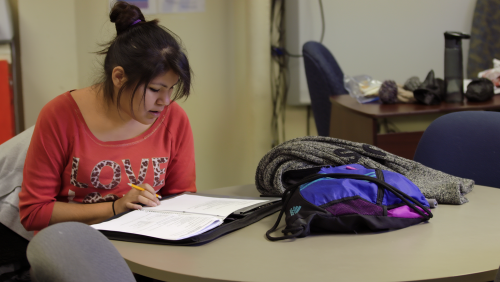
Download
Loading...
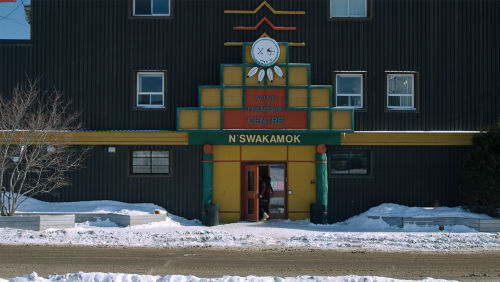
Download
Loading...
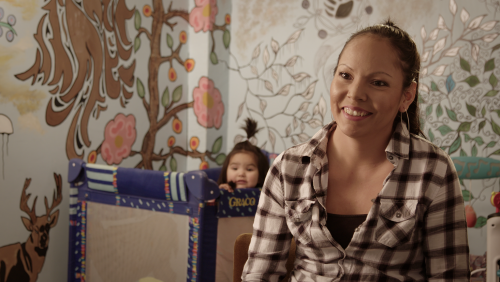
Download
Loading...
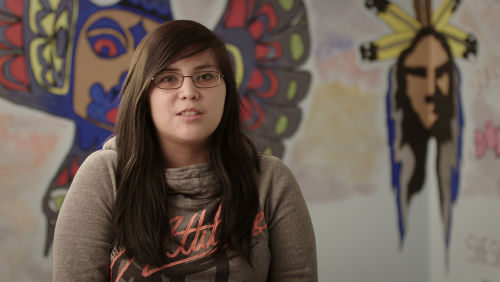
Download
Credits - Places to Gather and Learn
Written and Directed by
Darlene Naponse
Produced by
Sarah Charles-DeCarlo
Executive Producer
André Picard
Associate Producer
Kate Vollum
Director of Photography
Bradley Trudeau
Sound Recordist
Tammy Lin Foreman
Editor
Ryan Mariotti
Sound Edit
Ian Gomes
Camera Assist
Jacob White
Institutional Studio
Administrator
Isabelle Limoges
Production Coordinator
Gabrielle Dupont
Technical Coordinator
Daniel Lord
Director Business Development, Institutional Program
Julie Huguet
Coordinator, Institutional Program
Marcia Seebaran
Ontario Studio
Executive Producer
Anita Lee
Producer
Lea Marin
Manager, Studio Operations
Mark Wilson
Production Supervisor
Marcus Matyas
Technical Coordinator
Kevin Riley
Max Wolfond
Assistant Editor
William Mitchell
Online Editor
Denis Pilon
Sound Mixer
Geoffrey Mitchell
Infographist
Melanie Bouchard
Cynthia Ouellet
Jacques-Bertrand Simard
Technicians
Isabelle Painchaud
Patrick Trahan
Pierre Dupont
Marketing Manager
Charles Pease
Kelly Fox
Publicist
Jennifer Mair
Networking Agent
Donna Cowan
Marketing Manager, Community Projects
Jane Gutteridge
Legal Services
Christian Pitchen
“N’Swakamok”
Performed & Written by
Julian Cote
Published by
Julian Cote
Title Design
Aimée Rochard
N’Swakamok Native Friendship Centre
Marie Meawasige, Executive Director
N’Swakamok Alternative School Program
Kelly-Lee Assinewe
Laurie Dunn
Karen Gauvin
Crystal Halvorson
Life Long Care Program
Tony Tyson
Susan Roque
Receptionist
Liz Trudeau
Ontario Federation of Indigenous Friendship Centres
Featuring
Kirsten Baker-Nelson Shawnee Trudeau-Zacharie
Deion Faries Maliyah Walton
Jennifer Therrien Shad Walton
Katrina Trudeau Ashlyn Wemigwans
Cassandra Trudeau-Dominic Heather Wemigwans
Special Thank You to
N’Swakamok Native Friendship Centre
Mia Desroches
Filmed on Atikameksheng Anishnawbek Territory
Thank You
Susan Roque
Marie Meawasige
Josette Wahsquonaikezkik
Anita Condo
Anthony Tyson
Laurie Dunn
Mandy Moore
Theresa Lovely
Margaret Gordon
Elizabeth Trudeau
Evelyn Bisschops
Theresa Lovely
Virginia Jackpine
Christina Moore
Brenda Sirard
Marita Peltier
Sylvia Ingrid Kerfunt
Orba Marshall
William Webkamigad
William Petten
Theresa Pelletier
Jeannine Aubry
Faith Alice Nootchati
Lisa M’auley Angel Zacharie
Mallory Keeshig
Christian Metatawabin
Amerlia Trudeau
Christina Courtney Williams
Ashley Recollet Dokis
Marshall Flamand
Satara James
Paul Taylor
Christina Mishibinijima
Alexis-Aileen Pelland
Presented by the Ontario Federation of Indigenous Friendship Centres
Produced by the National Film Board of Canada
in collaboration with
the Ontario Federation of Friendship Centres
and
N’Swakamok Native Friendship Centre
Team
Sarah Charles-Decarlo
Producer
Photo
Photo : Sarah Charles-Decarlo
Michelle Derosier
Producer
Photo
Photo : Damien Gilbert
André Picard
Executive Director, Institutional Program (NFB)
Photo
Photo : © Panneton-Valcourt
Kate Vollum
Associate Producer (NFB)
Photo
Media Relations
-
About the NFB
The NFB is Canada’s public producer and distributor of award-winning documentaries, auteur animation, interactive stories, and participatory experiences. Since 1968, the NFB has produced over 300 works by First Nations, Métis and Inuit filmmakers—an unparalleled collection that pushes past dominant narratives and provides Indigenous perspectives to Canadian and global audiences. The NFB is implementing an action plan with commitments that include devoting a minimum of 15 percent of overall production spending to Indigenous-led productions and making these works more accessible via Indigenous Cinema, a destination on NFB.ca.
-
About the Ontario Federation of Indigenous Friendship Centres (OFIFC)
Founded in 1971, the Ontario Federation of Indigenous Friendship Centres (OFIFC) works to support, advocate for, and build the capacity of member Friendship Centres across Ontario.
Emerging from a nationwide, grassroots movement dating back to the 1950s, Friendship Centres are community hubs where Indigenous people living in towns, cities and urban centres can access culturally based and culturally appropriate programs and services every day. Today, Friendship Centres are dynamic hubs of economic and social convergence that create space for Indigenous communities to thrive. Friendship Centres are idea incubators for young Indigenous people attaining their education and employment goal; they are sites of cultural resurgence for Indigenous families who want to raise their children to be proud of who they are; and they are safe havens for Indigenous community members requiring supports.
In Ontario, more than 85 percent of Indigenous people live in urban communities. The OFIFC is the largest urban Indigenous service network in the province supporting this vibrant, diverse, and quickly growing population through programs and initiatives that span justice, health, family support, long-term care, healing and wellness, employment and training, education, research, and more.
Friendship Centres receive their mandate from their communities, and they are inclusive of all Indigenous people—First Nations, Status/Non-Status, Métis, Inuit, and those who self-identify as Indigenous.
Learn more about the work the OFIFC does to support Friendship Centres at www.ofifc.org.
-
About the Fort Erie Native Friendship Centre
The Fort Erie Native Friendship Centre (FENFC) was incorporated on February 17, 1983, and became a member of the Ontario Federation of Indigenous Friendship Centres (OFIFC) in 1984.
In 1982, the Native community started procedures to become incorporated as a non-profit charitable organization. This was achieved in February 1983, and in April 1983 the Centre received core funding, becoming the first fully funded satellite Friendship Centre in Canada. In 1984, the Centre was able to acquire St. Paul’s Parish Hall and became the first Native Friendship Centre to acquire Native community urban property without government or any other capital assistance.
The Fort Erie Native Friendship Centre provides a holistic service delivery to the entire community. The approach service delivery encompasses all the life cycles, from prenatal through to end of life. The Fort Erie Native Friendship Centre plays a pivotal role in community development through the delivery of programs and services.
-
About the United Native Friendship Centre
The United Native Friendship Centre (UNFC) was conceptualized in 1971, incorporated on January 31, 1973, and became a member of the Ontario Federation of Indigenous Friendship Centres (OFIFC) on February 25, 1973.
Since its early beginnings, the centre has grown from two to 19 programs which are housed in three buildings in Fort Frances. Included among the current programs are mini-programs and support staff who provide additional services. The centre has 75 members and seven board members, as well as Elders who provide cultural and spiritual teachings. The Friendship Centre has formed other links to Aboriginal agencies in the community by creating partnerships with community service providers and having representation on boards and committees. These resources are required so that the centre can maintain the four primary functions of counselling, education, social and cultural development that were outlined during the formative years of the Friendship Centre.
Its primary responsibility is to serve Aboriginal people with special services in the fields of social, educational and cultural development while, at the same time, building a bridge of understanding between Native and non-Native people. In recognition of the ever-changing world in which we live, the United Native Friendship Centre is dedicated to enhancing the lives of Native and non-Native people in their community and surrounding area.
-
About the N’Swakamok Native Friendship Centre
The N’Swakamok Native Friendship Centre (NNFC) was incorporated on December 18, 1972, and became a member of the Ontario Federation of Indigenous Friendship Centres (OFIFC) on February 25, 1973. The Friendship Centre was first established in 1967 through the efforts of the Nickel Belt Indian Club. By that time, the directors and some of the members of the Club were already involved in voluntary work such as in the courts and through referrals.
The purpose of the N’Swakamok Friendship Centre is to assist Aboriginal people migrating to or already living in the Greater City of Sudbury. The centre has developed and implemented programs and activities that serve the social, cultural and recreational needs of the Aboriginal community. The centre is managed by a Board of Directors that is elected by the membership. The Friendship Centre has open membership that is open to any person or group wishing to join.
-
About the Toronto Council Fire Native Cultural Centre
The Toronto Council Fire Native Cultural Centre (Council Fire) was established in 1978 and incorporated on February 9, 1982. Council Fire became a member of the Ontario Federation of Indigenous Friendship Centres (OFIFC) on October 24, 1982.
After three decades, Council Fire has not only taken its place in the city but has become a significant team player in the Greater Toronto Area. An indicator of success is the marked respect afforded to the Centre for the spirit of the work and support to the community. Council Fire is proud to say “it is an organization that provides a listening ear and caring staff to help people close the gaps that otherwise may have put them at risk of falling through the cracks. This means that when people are searching for help they are not told what to do with their lives but are shown acceptance, love, respect and support. Anyone who works in this environment can be proud of this accomplishment. The future is now! The ability for growth and development has no limitations. We need only to reflect on the footprints of our past leaders and ensure that our path is consistent, our minds are open and our actions are based on those we serve.”
Council Fire’s mandate is to provide counselling, material assistance and other direct services to First Nations people, as well as to encourage and enhance spiritual and personal growth.
-
About the North Bay Indigenous Friendship Centre
The North Bay Indigenous Friendship Centre (NBIFC) was incorporated on March 22, 1974, and became a member of the Ontario Federation of Indigenous Friendship Centres (OFIFC) in 1974. The NBIFC became the 14th Indigenous Friendship Centre in Ontario when it was incorporated. Originally located in a small building in North Bay, on the corner of Cassells and Third Avenue, the Centre moved to its present location at 980 Cassells Street in 1978.
Like the original Friendship Centre concept, which recognized the need to assist Aboriginal people leaving reserves and adjusting to urban life, the NBIFC grew out of a need to provide a central place of orientation or “gathering place” for the 600 or so Aboriginal students who came from such communities as Manitoulin Island and the James Bay area.
The mission of the North Bay Indigenous Friendship Centre is to improve the quality of life for First Nations, Métis, and Inuit people in the urban environment of North Bay by supporting self-determined activities that encourage equal access and participation in society, and that respect Aboriginal cultural distinctiveness. The North Bay Indigenous Friendship Centre provides a wide array of programs and services to support Aboriginal people of all ages. An important part of our mandate is to serve as a Gathering Place. The NBIFC invites all community members to visit the Centre and participate in the many communal activities that are held throughout the year.